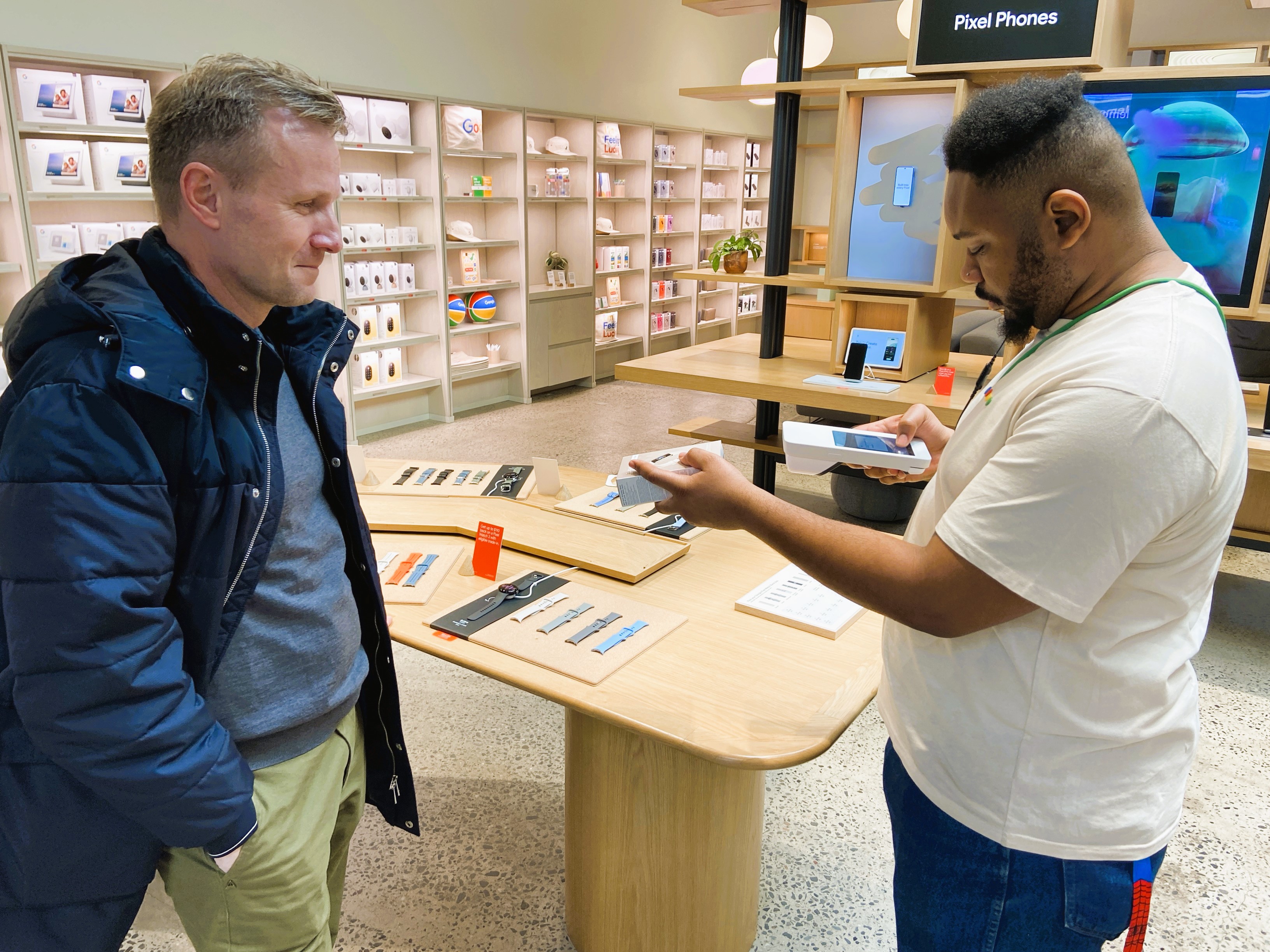Imagine a store that anticipates your needs and tailors the experience just for you. This isn't science fiction, but a glimpse into the future of retail, as revealed by recent industry events like NRF 2024: Retail’s Big Show in New York City and EuroCIS 2024 in Düsseldorf. In our recent episode of Retail Dialogues by Fiftytwo we offered insights from experts, shedding light on the global trends that are transforming how we shop, focusing on the hottest ones especially showcased in the big apple.
The progression of retail technology
Discussions at these events highlighted a significant shift towards technology-driven solutions. Advancements in artificial intelligence (AI), edge computing, and mobile point-of-sale (MPOS) offered a glimpse into how retailers are adapting to meet new consumer expectations. This isn't about deploying the latest gadgets; it's about strategically integrating technology to enhance every aspect of the retail experience, from personalized product recommendations to streamlined checkout processes.
- Hybrid cloud: edge computing meets the cloud
Edge computing is becoming a crucial trend in retail. It improves operations by enabling on-premise data handling, ensuring real-time decision-making capabilities such as inventory management and customer service enhancements. Integrating edge computing with cloud services not only allows for comprehensive analytics but also significantly increases operational reliability. This hybrid deployment approach ensures that in the event of internet connectivity issues, critical systems like point-of-sale (POS) terminals remain operational, preventing sales disruption and maintaining customer service standards. Thus, the hybrid model of edge and cloud computing not only fosters efficiency and privacy compliance but also enhances system resilience, making it a key strategy for modern retail operations.
- AI's role in inventory management
Inventory management is seeing a major upgrade thanks to AI. With the integration of smarter systems into retail operations, managing stock has become more sophisticated. By leveraging AI, retailers can now forecast demand, analyze trends, and adjust inventory levels with unprecedented accuracy. These systems utilize historical sales data and consider variables such as seasonal changes and weather effects, ensuring retailers have the right amount of stock at the right time. This precision reduces the risks associated with overstocking or understocking. Moreover, it decreases the reliance on clearance sales, limiting inventory waste and supporting a more sustainable retail model. - Mobile POS – beyond transactions
The transformation of the POS system encapsulates the shift towards a more integrated retail experience. This development of mobile POS systems underlines a broader trend towards creating seamless, engaging shopping experiences that extend beyond the mere act of purchasing. Mobile POS systems can now facilitate loyalty programs, contactless payments, and even product information retrieval through on-demand scanning. This empowers customers to take control of their shopping journey, fostering a sense of convenience and autonomy. - Remote monitoring’s broader scope
Remote monitoring in retail extends beyond security measures, encompassing comprehensive oversight of both customer interactions and critical systems. This holistic approach allows retailers to ensure operational efficiency and system health, reducing downtime and maintaining optimal store performance. By leveraging technology to oversee both in-store activity and IT infrastructure, retailers can proactively address potential issues, ensuring a seamless shopping experience for their customers. - The shift to unified commerce
The transition from omnichannel to unified commerce marks a significant step forward in retail, emphasizing a seamless integration of various shopping channels to offer a cohesive customer experience. Unified commerce not only facilitates smoother interactions across physical and digital storefronts but also empowers retailers to leverage comprehensive insights for personalized customer engagement, fostering loyalty and driving growth in an increasingly competitive retail sector. - Task management powered by AI
AI's role in task management reforms retail operations by automating routine activities, enabling staff to concentrate on higher-value tasks such as enhancing customer service and engaging more deeply with consumers. This shift not only improves operational efficiency but also enriches the shopping experience, with technology playing a key role in bridging the gap between digital capabilities and human touch. - Commitment to green tech
In embracing green technology, retailers are acknowledging their responsibility towards environmental sustainability. The focus extends beyond adopting renewable energy sources to encompass comprehensive lifecycle management of products and technologies. This commitment not only responds to growing consumer demand for eco-friendly practices but also represents a critical step in minimizing the retail sector's environmental footprint, ensuring a sustainable future for the industry and the planet alike. - The rise of frictionless shopping
The desire for frictionless shopping experiences drives innovation across the retail sector, with technology serving as the enabler for convenience and speed. Imagine walking into a store, selecting your items, and having the payment process completed automatically as you leave. While this might seem futuristic, advancements in sensor technology and automated checkout systems are paving the way for a more frictionless shopping experience. This could not only save customers valuable time but also streamline operations for retailers, allowing staff to focus on providing a more personalized shopping experience.
Technology keeps developing, and the retail sector keeps pace, adapting to the ever-changing needs of consumers. The most important thing? It's not just about the latest gadgets; it's about creating valuable, convenient, and engaging experiences for every customer.
To explore these retail trends in more detail and hear firsthand from industry experts Ivo Ølstørn and Søren Brammer Riis, watch episode 2 of Retail Dialogues on-demand right here:



